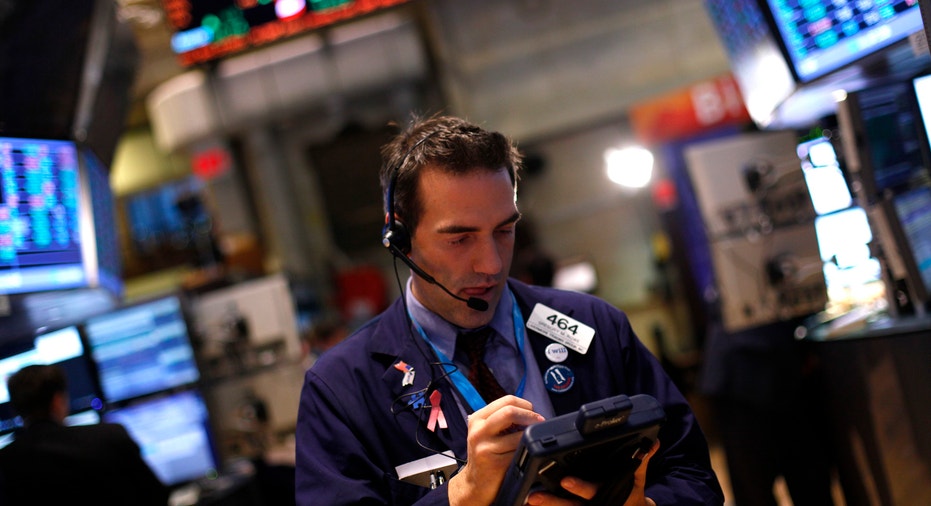Wall Street Sells Off as Shift from Risk Persists

FOX Business: Capitalism Lives Here
U.S. equity markets took a hit for the third-straight session as traders ditched risky assets in favor of safe havens like utilities, consumer staples and Treasury bonds.
Today's Markets
The Dow Jones Industrial Average fell 167 points, or 1%, to 16246, the S&P 500 dipped 20 points, or 1.1%, to 1845 and the Nasdaq Composite slumped 48 points, or 1.2%, to 4080.
The Nasdaq plummeted 2.6% on Friday in its worst day since early February. The tech-heavy index also posted its worst two-week decline since 2012. The move has come on the back of an intense selloff in once high-flying technology and biotechnology names. Stocks that took a beating on Friday included Google (NASDAQ:GOOG), Amazon.com (NASDAQ:AMZN), and Intuitive Surgical (NASDAQ:ISRG).
That trend continued on Monday as traders sold off shares of economically-sensitive companies, like consumer discretionary, industrial, financial and materials firms. Meanwhile, defensive names in segments such as utilities and consumer staples performed well. Traders also bid up U.S. Treasury bonds, sending the yield on the 10-year bond down 0.034 percentage point to 2.691%.
The Dow, S&P 500 and Nasdaq are all in the red for the year at this point.
The sudden shift comes as traders move money from growth stocks into more defensive dividend-paying shares, such as utilities. Peter Boockvar, chief market analyst at The Lindsey Group, said concerns that the economy is still sluggish, yet still growing quickly enough for the Federal Reserve to continue tapering its bond-buying program, was at least partly to blame. This comes at a time when analysts are increasingly discussing a potential bond-purchasing program from the European Central Bank to combat very light inflation in the eurozone.
The U.S. economic calendar was fairly light on the day. A report from the Federal Reserve showed consumer credit jumped by $16.5 billion in February -- well above the $14.1 billion estimate. Analysts at Barclays said the move was sparked entirely by a big increase in non-revolving credit like student and auto debt.
A report out of Europe showing German industrial production slowed to a month-over-month pace of 0.4% in February from 0.7% in January did little to ease traders' nerves.
In corporate news, earnings season kicks off later this week, with companies such as J.P. Morgan Chase (NYSE:JPM), Wells Fargo (NYSE:WFC) and Alcoa (NYSE:AA) set to report. Procter & Gamble (NYSE:PG) also hiked its quarterly dividend by 7%.
Elsewhere, U.S. crude oil futures fell 70 cents, or 0.69%, to $100.44 a barrel. Wholesale New York Harbor gasoline dipped 0.18% to $2.926 a gallon. Gold slipped $5.20, or 0.4%, to $1,298 a troy ounce.



















